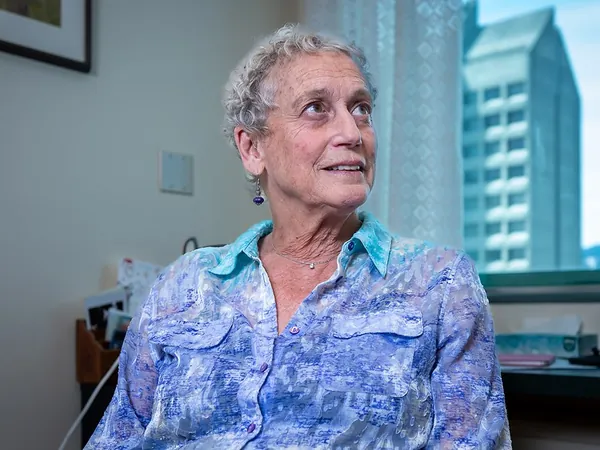
Tragic Euthanasia Case Sparks Legal Battle Over Canada’s Assisted Death Laws
2024-12-19
Author: Liam
Introduction
In a shocking turn of events, a British Columbia family is filing a wrongful death lawsuit after their loved one was euthanized while on a day pass from a psychiatric hospital. The case brings renewed scrutiny to Canada's assisted-death legislation, raising serious questions about its constitutionality and ethical implications for individuals suffering from mental illness.
Details of the Case
The family alleges that the 52-year-old man, referred to as J.M.M., was wrongfully approved for Medical Assistance in Dying (MAID) despite a long history of mental health issues, primarily a diagnosis of bipolar disorder. They contend that J.M.M. also suffered from treatable back pain, which did not meet the legal criteria for receiving MAID.
Current Laws and Regulations
The current laws in Canada stipulate that individuals suffering solely from mental illnesses are temporarily barred from accessing MAID until at least 2027. However, those with coexisting physical ailments can qualify, which has led to a complex and troubling landscape for mental health patients seeking assisted death.
Concerns Over Consent and Pressure
The family claims J.M.M. did not have the requisite capacity to consent to MAID procedures due to his mental illness and suggest that external pressures, including financial struggles, influenced his request. They argue that previous evaluations indicated he should not receive MAID, particularly after a court order was issued to commit him to psychiatric care.
Tragic Circumstances Surrounding His Death
Tragically, on the day of his death, J.M.M. reportedly expressed a desire to seek alternatives to relieve his suffering rather than proceed with assisted death. The family maintains that he was allowed to leave the hospital under negligent circumstances and subsequently died at a clinic operated by Dr. Ellen Wiebe, a prominent figure in giving medically assisted deaths in Canada.
Legal and Ethical Implications
As the family seeks justice, they are challenging the integrity of the MAID framework and its intersection with mental health laws, claiming it violates constitutional rights. Their legal action names various health authorities and government officials, highlighting a pressing need for reform in how assisted death is administered, particularly for vulnerable populations.
Broader Context and Concerns
This situation is not isolated; it mirrors a growing concern among advocates and healthcare professionals about the appropriateness of MAID for individuals with mental health disorders. A recent incident involving Dr. Wiebe raised alarms after a judge intervened to prevent a planned euthanasia for a woman with bipolar disorder, suggesting a potential trend of inappropriate use of assisted death as a solution to treatable conditions.
Expert Opinions
Experts in health law stress the dangerous implications of these cases, urging for safeguards to prevent the premature loss of life for individuals who may not fully grasp their choices due to mental health struggles.
Conclusion
As more families like J.M.M.'s come forward, the conversation around Canada’s MAID law is set to intensify, prompting a national dialogue on the ethical boundaries of assisted dying and the protection of patients who are often left navigating a complex and daunting healthcare system. The outcome of this lawsuit may redefine the parameters of assisted death and its role in mental health treatment, making it a pivotal moment for Canadian law and ethics.









 Brasil (PT)
Brasil (PT)
 Canada (EN)
Canada (EN)
 Chile (ES)
Chile (ES)
 España (ES)
España (ES)
 France (FR)
France (FR)
 Hong Kong (EN)
Hong Kong (EN)
 Italia (IT)
Italia (IT)
 日本 (JA)
日本 (JA)
 Magyarország (HU)
Magyarország (HU)
 Norge (NO)
Norge (NO)
 Polska (PL)
Polska (PL)
 Schweiz (DE)
Schweiz (DE)
 Singapore (EN)
Singapore (EN)
 Sverige (SV)
Sverige (SV)
 Suomi (FI)
Suomi (FI)
 Türkiye (TR)
Türkiye (TR)